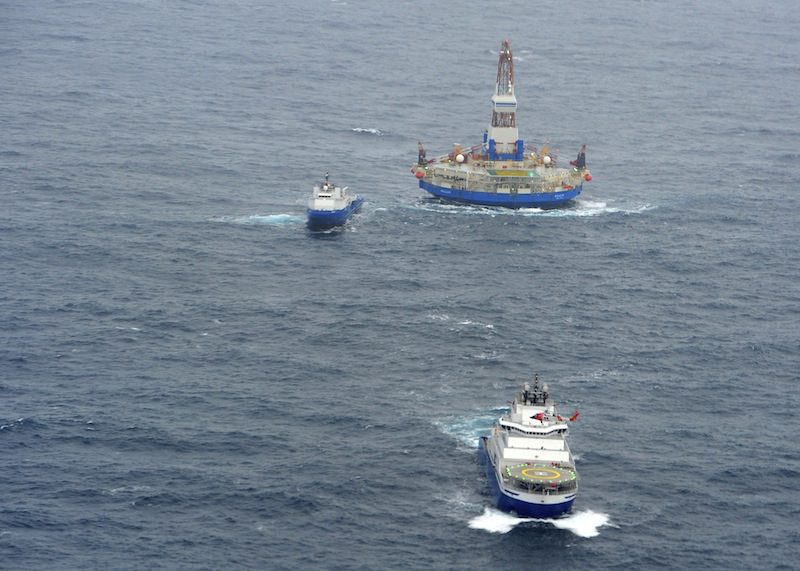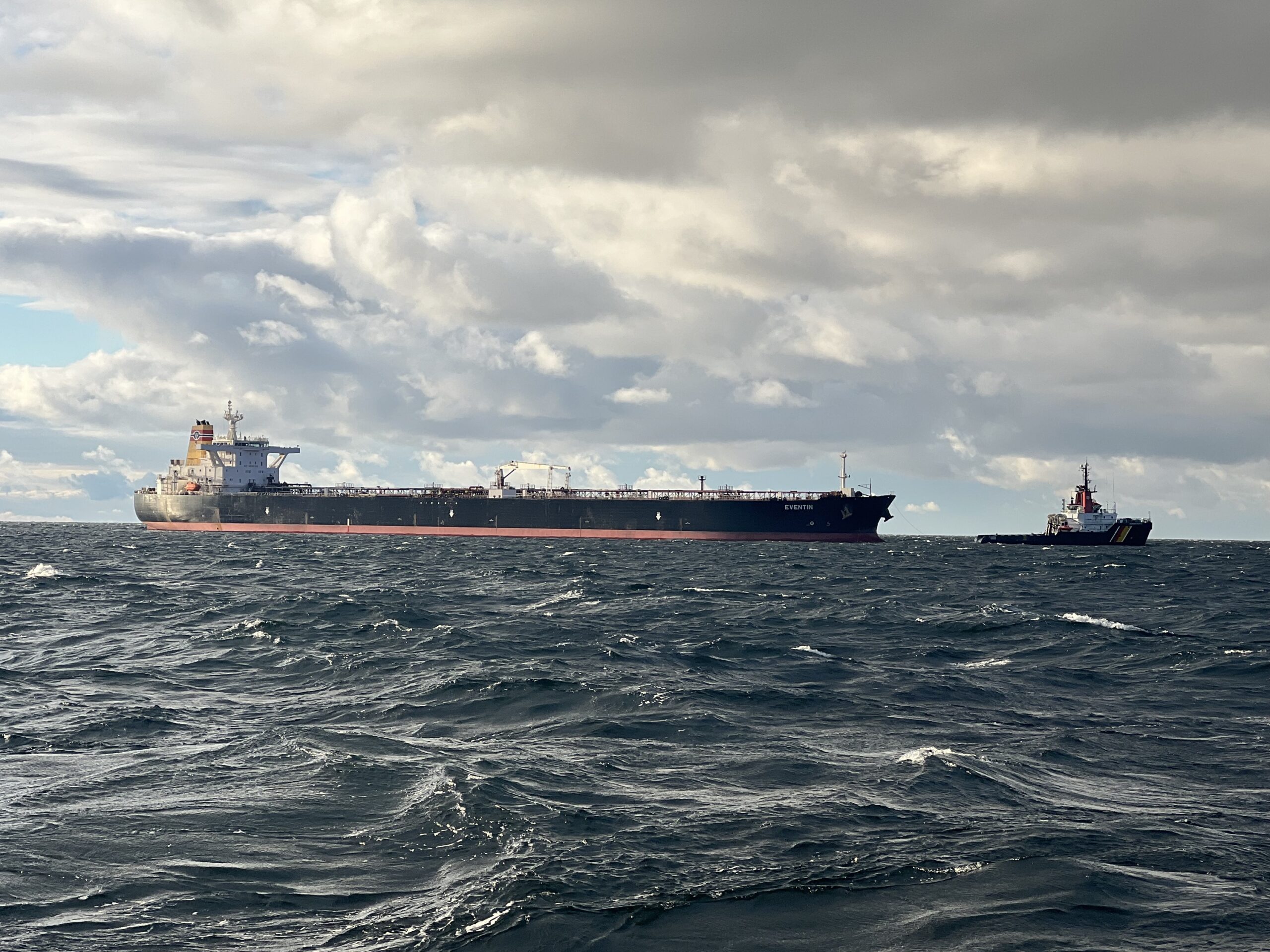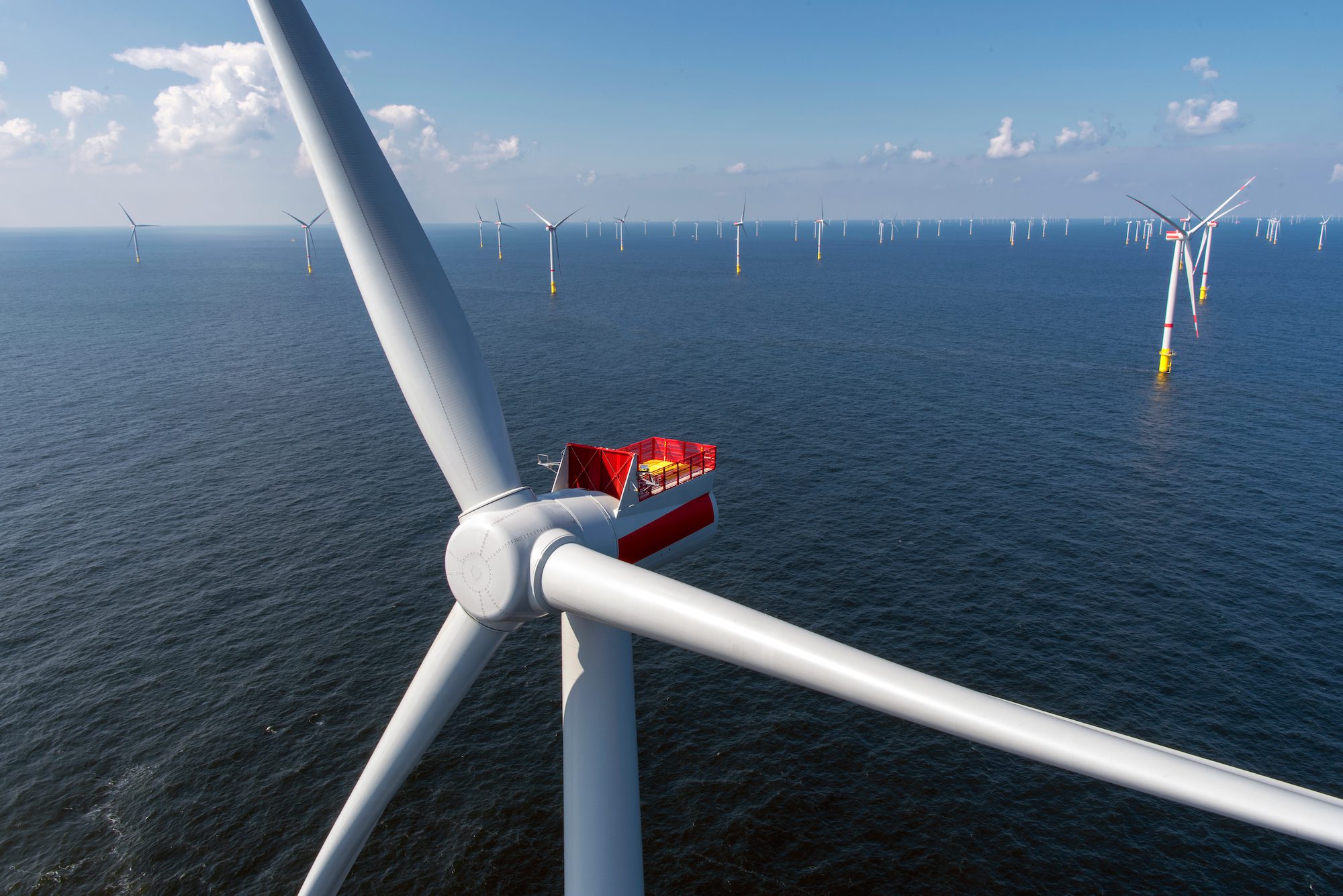A Coast Guard HC-130 Hercules aircraft from Air Station Kodiak overflies the tugs Aiviq and Nanuq tandem towing the mobile drilling unit Kulluk, Sunday, Dec. 30, 2012, two days after the Aiviq began experiencing engine problems. U.S. Coast Guard Photo
 By Steve Quinn
By Steve Quinn
JUNEAU, Alaska, April 3 (Reuters) – Royal Dutch Shell ignored warnings about the dangers of a towing mission that left a drillship grounded in the storm-tossed Gulf of Alaska in 2012, in part to avoid paying millions of dollars in state property taxes, the U.S. Coast Guard said in a report released on Thursday.
The Kulluk, having completed preliminary drilling on an exploration well in the Beaufort Sea, broke away from its tow lines and support vessels attempting to regain control of the drillship developed their own engine and mechanical problems, a Shell official said last year.
The 152-page report, which came nearly a year after a U.S. Coast Guard hearing into the incident off Kodiak Island, concluded that Shell’s towing plans “were not adequate for the winter towing operation crossing the Gulf of Alaska.”
It also said tax laws “influenced the decision” because Shell believed the rig would be subject to taxation if it were to stay in Alaska waters by Jan. 1, 2013.
The round drilling rig was towed by the Aiviq, a custom-built vessel operated by Edison Chouest Offshore.
“To be blunt, I believe that this length of tow, at this time of year, in this location, with our current routing guarantees an ass kicking,” Aiviq’s tow master warned Shell early in the tow, according to the U.S. Coast Guard’s report.
Shell said it was reviewing the findings.
“We appreciate the thorough investigation and will take any findings seriously,” the company said.
“Already, we have implemented lessons learned from our internal review of our 2012 operations. Those improvements will be measured against the findings in the USCG report as well as recommendations from the U.S. Department of (the) Interior.”
The Kulluk was docked in Dutch Harbor along the Aleutian Islands before setting out on the trip across the Gulf of Alaska to Washington state. None of the fuel on the rig spilled into the water an no one was injured.
Shell has not resumed exploration in the Arctic.
A federal appeals court has ruled that the U.S. Department of Interior awarded Arctic drilling leases in 2008 without considering the range of potential environmental risks stemming from oil drilling. (Editing by Paul Tait)
SEE ALSO: Kulluk Grounding Incident Coverage
(c) 2014 Thomson Reuters, All Rights Reserved

 Join The Club
Join The Club











